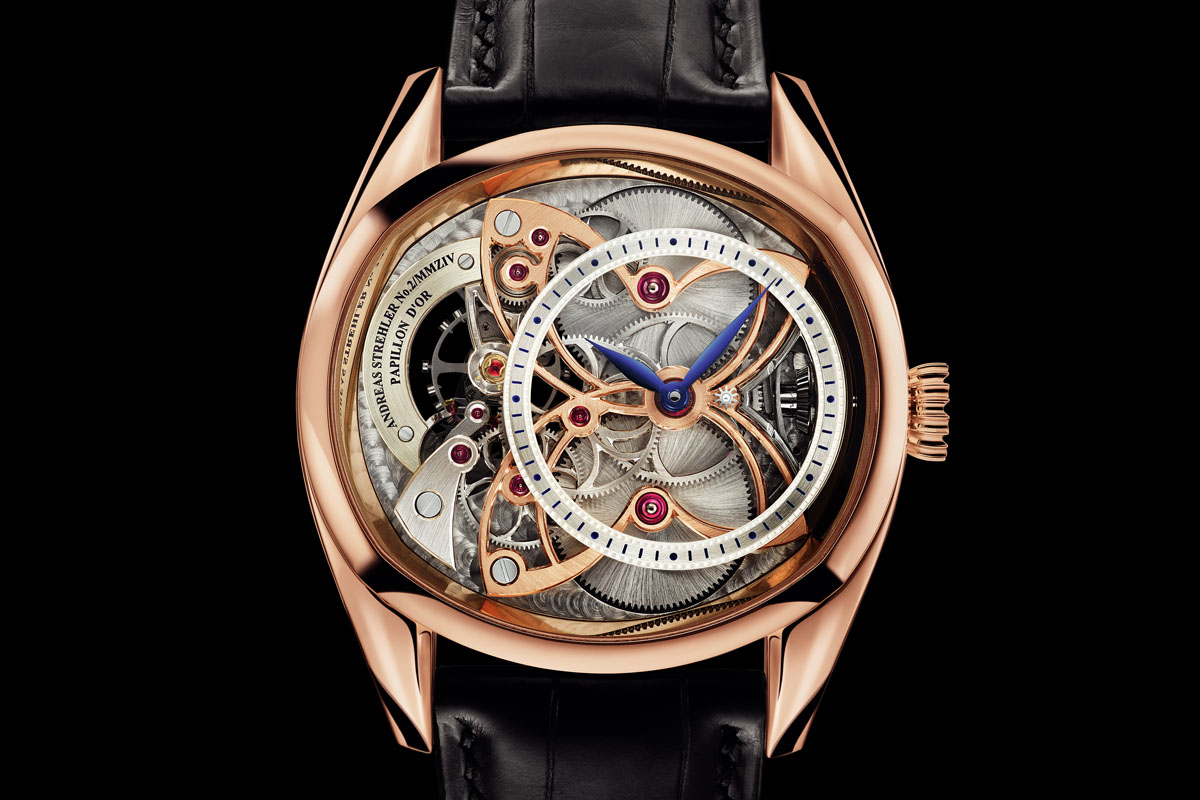Introducing the Andreas Strehler Papillon d'Or

In the world of independent watchmaking, there are the big names, such as MB&F, Richard Mille or Urwerk and there are the confidential manufactures, like Kari Voutilainen, Grönefeld or Sarpaneva. One of them has to be seen as extremely exclusive, first because of the very limited production figures but also because of the unique beauty of his watches. His name is Andreas Strehler and his latest creation is the Papillon d’Or.

Andreas Strehler is a name that only a few of you might know. Only a very limited number of hardcore collectors are aware of his own brand and creations. However, his work is also known from a larger audience, as he is responsible for the development of several superb timepieces, such as the Harry Winston Opus 7, the Maurice Lacroix Chronograph with an in-house calibre, the Maitre du Temps Chapter Three or several H. Moser & Cie movements – he participated to the development of the H. Moser & Cie Perpetual Calendar.
This master watchmaker however has his own brand and creates his own, very personal watches. Every of them is inspired by the ‘papillon’ (french word for butterfly), as we’ve already seen in the Andreas Strehler Cocon, a watch that we reviewed a few years ago. For 2015, Andreas Strehler comes with a new watch and brings again into the movement, his typical papillon bridge – and an astonishing level of details.

While the Cocoon (or the Sauterelle, another watch of the collection) features the butterfly bridge on the movement side, this new Papillon d’Or brings it on the dial side with a fully skeletonized movement. The dial does not exists anymore – except a fine silver engine-turned minute track. The main bridge that holds the two barrels – one at 2 and one at 4 – and the whole gear train, is made of solid gold and has the butterfly shape – which can explain the french name Papillon d’Or (gold butterfly). The other creations of Andreas were discreet (yet original) watches that could be appreciated by the wearer and a few initiates only, as the movement was hidden behind a guilloche dial. On this Papillon d’Or, every part of the watch is visible, from the escapement to the wheels.

The first things that you’ll probably notice is the design of the technical elements – the butterfly bridge or the round lugs of the cogged wheels. However, you have to take closer look at it to really distinguish what makes this watch a superb achievement. Every part is finished by hand, with black polishing, straight or concentric graining, circular graining… The amount of internal angles is impressive (we bet you to count them). Internal angles are certainly one of the most complicated finishing as only a trained hand and some patience can achieve a decent result. Here, we’re far from decent. It is superb. These polished angles can also be found on the wheels.

The back of the Andreas Strehler Papillon d’Or reveals a power-reserve indicator. It might look like a simple hand on a simple scale but in fact it incorporates what is probably the world’s smallest differential gear. This, of course, is built with Andreas Strehler’s own true conical gear wheels. The back of the movement is also entirely hand-finished with radial Geneva Stripes and polished bevelled angles.

The Andreas Strehler Papillon d’Or is available in two editions: a platinum case with blue alligator strap and a 18k pink gold case with black alligator strap. No price revealed yet. This category of objects with such a a level of hand work is somehow priceless – or in fact, extremely expensive. More details on the brand’s website.



